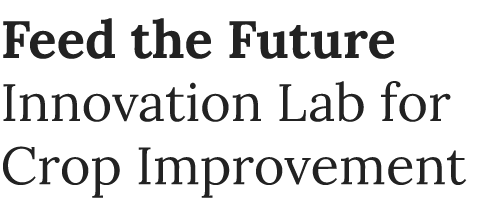Authors: Gloria Nakamya | Brenda Boonabaana | Ibrahim Bahati | Peace Musiimenta
Global South agri-food systems are facing multiple shocks and stressors associated with climate change, high living costs, conflict, and health crises like COVID-19, among others. These crises are interfaced with rising population projections, especially in Africa. Further evidence shows that young people in global South regions will be physically and psychologically impacted by climate change over time. This confers on youth the burden of combating global warming to secure basic livelihoods. We recognize that age intersects with gender, socio-economic status, citizenship, and disability affecting how young men and women are exposed to, impacted by, and adapt to climate shocks differently. From March to August 2024, we conducted a desk review to assess climate change adaptation strategies deployed by young women and men in the global South agrifood systems, and explored how crop improvement research could potentially amplify their adaptation capacities, as summarized below;
Youth and climate change adaptation constraints
Results suggest that youth participation in agriculture has decreased due to persistent barriers associated with access to, and use of new agricultural technologies, limited access to land, loans and agricultural information. Producers may face high prices for agri-inputs that also require a repurchase for every planting season in East Africa. Generally, there tends to be a policy bias that works against youth within the agrifood systems’ labor market. Unequal land rights especially in customary land arrangements in low and middle-income countries usually make the transfer of land to young women more challenging due to unfair inheritance laws and customs (FAO, 2014). In Asia, and Africa such as in Malawi and Ghana, access to land is complex due to land inheritance systems which are quite acute for young men in matrilineal Malawi. In Uganda, a study by Acevedo et al.(2020) shows that young, poor women household heads were the least likely to adopt drought-tolerant maize. In Peru, young men and women experience a persistent lack of challenge of land control that is largely controlled by their fathers and widowed mothers. In Latin America, more generally, young women are less likely to access and control irrigation systems. Such constraints have resulted into severe disruptions of youth livelihoods including their inability to secure decent food and nutritional security, increased poverty rates, and reduced well-being outcomes. In response, the youth are migrating from rural to urban areas (see example of Vietnam, Mexico, India, and East Africa) or immigrating to other countries in search of better-paying non-farm employment opportunities. For instance, in rural Northwest Mexico, young women’s out-migration could rise faster compared to young men’s due to women’s concentration in a narrower set of agricultural activities that are susceptible to climate change.
Youth adaptation preferences and actions
We further note that youth who stay and work in their agrifood spaces try to cope with and adapt in multiple ways, depending on their contextual realities. For example, in Nigeria, youth employ sequence planting, early maturing crops, and growing drought-resistant crops but these were directly influenced by their age, years of formal education and farming experience, gender, religious affiliation, and ethnicity. In Mali, youth who find it hard to access land due to State control has been supported by the World Bank to grow fruits and vegetables while NGOs like LuxDev and Helvetas are helping youth with access to land to secure legal land titles, support with agricultural training, and access to agricultural loans. In Kenya, IFAD has supported the youth to grow vegetables using hydroponics while in Senegal, efforts are underway to secure youth resilience futures. In Nigeria, Hydroponics, Aeroponics, and Aquaponics-based farming are potentially positively changing youth perceptions of farming amidst land ownership and scarce youth-friendly technologies, among other challenges. In Uganda, young farmers were using climate-smart agricultural (CSA) technologies such as drought-tolerant crop varieties, and installing drip irrigation systems to support their farming enterprises. However, the majority face persistent financial constraints to fully integrate such climate-friendly systems. In Kenya, youth-friendly initiatives such as the Youth Enterprise Development Fund (YEDF) in collaboration with Amiran Kenya Ltd have provided youth groups with customized Amiran Farmer Kits, which include greenhouses, drip irrigation systems, and other agricultural inputs, minimizing the risk of losing their crops to drought. In Peru, youth are diversifying their agricultural activities by engaging in to “Cuy” (guinea pig) farming, justifying that livestock (such as pigs) are more resilient in the face of climate shocks than crops, multiply faster, and provide food security. In India, youth-targeted strategies are encouraging youth to stay in the agricultural sector while in South Asia more broadly, government support for agroecology and organic farming is attracting youth back to agriculture. Extant case studies therefore demonstrate youth preference for technology-compliant agricultural practices, reduced drudgery, income, and food security, as well as “clean” farming.
Youth Inclusive Climate Change Adaptation Options through Crop Improvement Research
We believe that crop improvement research can may contribute to amplifying the youth voice and agenda for national attention to their plight. This may particularly begin with national breeding programs intentionally involving young farmers, especially young women smallholder farmers, and other end users, in the design and development of improved crop varieties. Their experiences, interests, and needs, should be captured to inform key resilience-targeted decisions at different nodes of the breeding cycle. A good example is a cowpea breeding program in Malawi, Tanzania, and Mozambique whose results show that while women constitute the majority of cowpea farmers, they are not always consulted in trait preferences and cowpea breeding programs. However, but upon applying a gender and age-specific lens, it was discovered that young men preferred market-oriented traits such as high grain yield, early maturing crops with two harvest cycles in one rainfall season, taste, pests, and disease-resistant whereas young women preferred household and food security-focused with high grain yield, fast cooking time, and better leaf taste technologies. Thus, a participatory and interdisciplinary approach to crop improvement that actively engages young people in crop innovation processes could potentially deliver greater results for them and their families. This begins with an understanding of their context-specific realities and ensuring they are factored into the breeding agenda and processes. Evidence in South East Asia such as in the My Loi village in Vietnam shows that successful projects in CSA are those that practiced gender and youth responsiveness, to address the age and gender gaps in climate shock impacts.
Finally, agricultural stakeholders and policymakers alike need to understand that “no one size fits all” but a need to carefully consider the contextual and intersectional dynamics that young men and women must navigate not only to participate in agriculture but also to build their adaptive capacities to climate shocks. Beyond technology-focused solutions, supportive policies and frameworks that promote capacity building, stakeholder engagement, and sustainable funding should be youth-inclusive. The above simply means that scientists need to adopt a youth-inclusive approach for a greater resilience-focused impact, especially in low-income communities where the youth are not only the majority but also often marginalized.

About the Researchers
Brenda Boonabaana is an assistant professor in the Department of Geography at the University of Texas at Austin and co-lead for the cross-cutting themes (CCT) for Feed the Future Innovation Lab for Crop Improvement (ILCI)
Peace Musiimenta is a senior lecturer in the School of Women and Gender Studies, Makerere University
Ibrahim Bahati is a senior research assistant for the CCT-ILCI project based at Makerere University, Uganda
Gloria Nakamya is a research associate for the CCT-ILCI project based at Makerere University, Uganda



